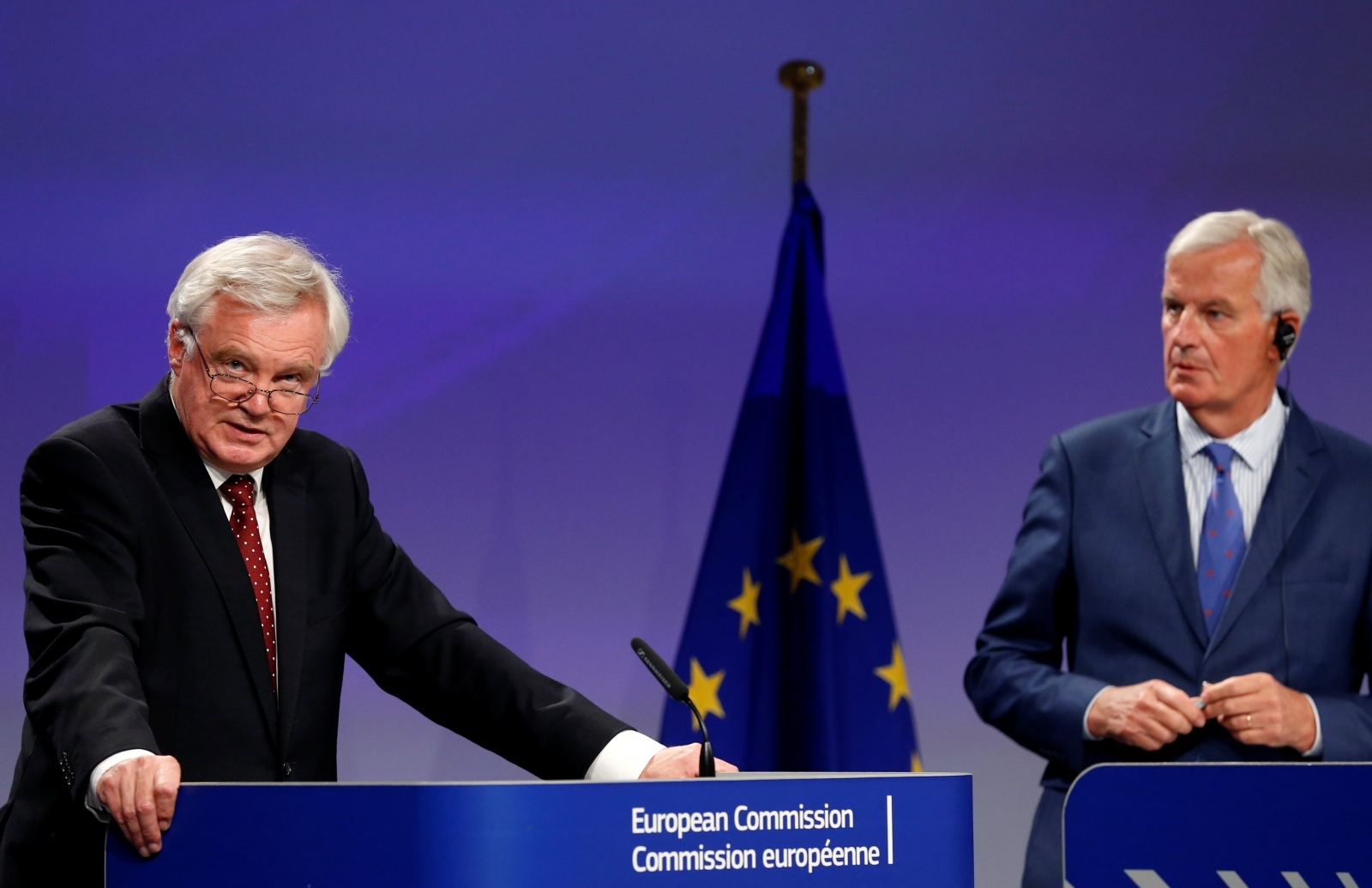The UK and EU should consider setting up a "shared market" which would allow borderless trade to continue between both sides after Brexit, a think tank has suggested.
The Institute for Public Policy Research (IPPR) has called for the creation of a new customs union within which the UK would be able to opt out of EU rules in specific areas such as goods, services and state aid.
Under the scenario, Britain would also be able to opt out of the jurisdiction of the European Court of Justice, which would be replaced by a joint UK-EU court.
The proposal will be presented to Brexit Secretary David Davis on 18 December.
IPPR director Tom Kibasi told Bloomberg that the proposal is for the 70% of people who wanted a sensible deal, built on precedents, that would work for the whole country.
"This isn't a proposal for the 15% of extremists on either side," he said.
Prime Minister Theresa May and her senior cabinet ministers have begun discussions on what the UK's long-term relationship with the EU should look like.
The EU's chief Brexit negotiator, Michel Barnier, has warned that the UK will not be able to "cherry-pick" its way to a bespoke trade deal with Brussels that includes the best parts of all potential future arrangements.
"They have to face the consequences of their own decision," he said in an interview with Prospect magazine.
"The British had the idea they could mingle everything: the price for past commitments, the financial issue and the future," Barnier said.
"We said: first, we settle the past, like in any separation, then we start talking about the future.
"The actual negotiations on the future relationship will only begin once the UK leaves the EU."
May has indicated that she will push for a transition period of two years, which would allow the UK to stay in the single market beyond its scheduled exit date of March 2019.
Meanwhile, banking trade body UK Finance wrote to May cautioning her that a free-trade agreement similar to what Canada has with the EU would not be good enough to safeguard Britain's financial sector after Brexit.


